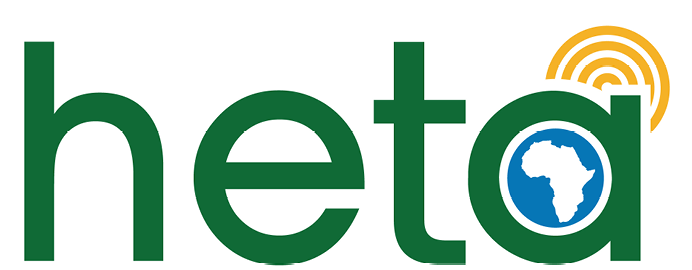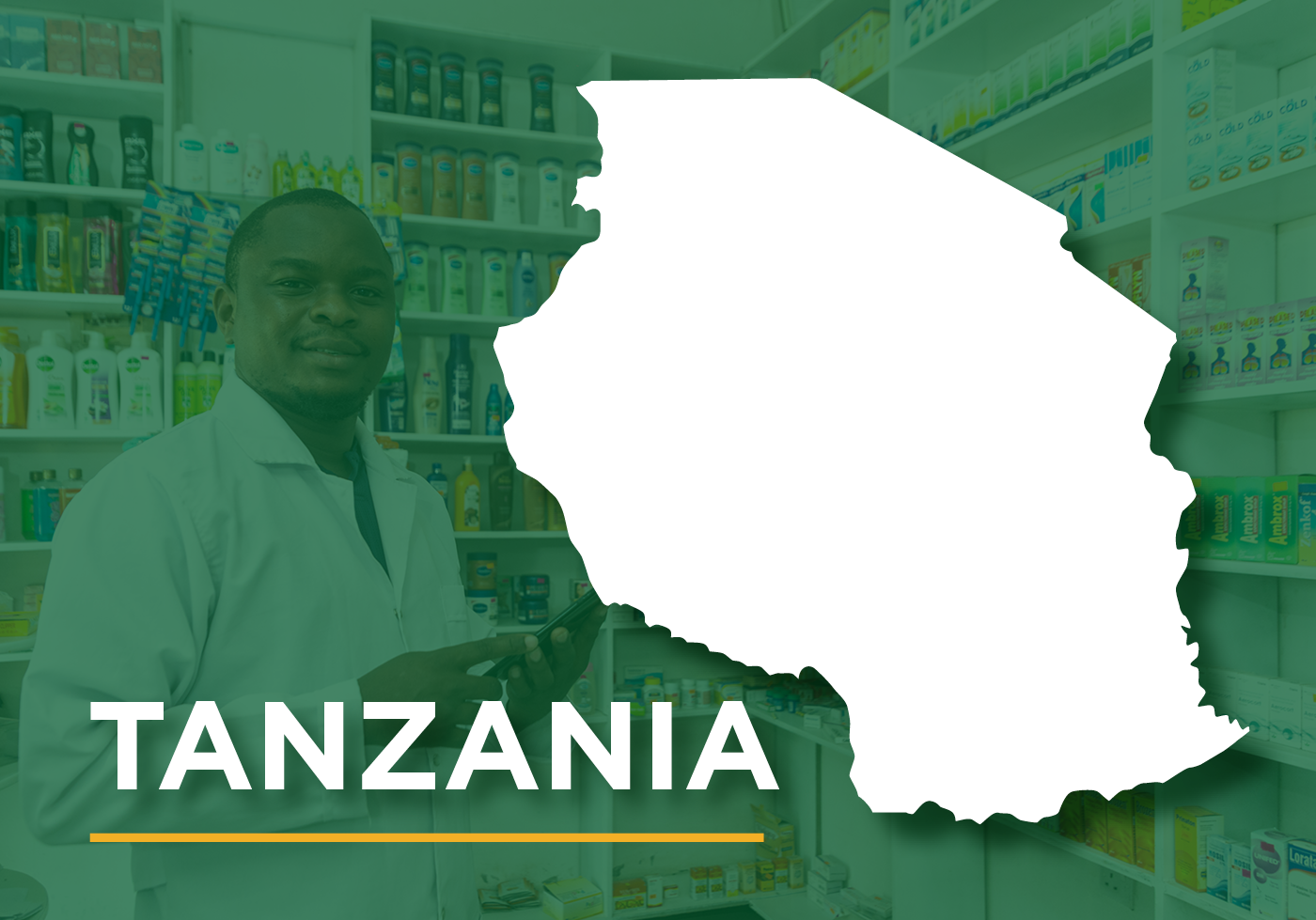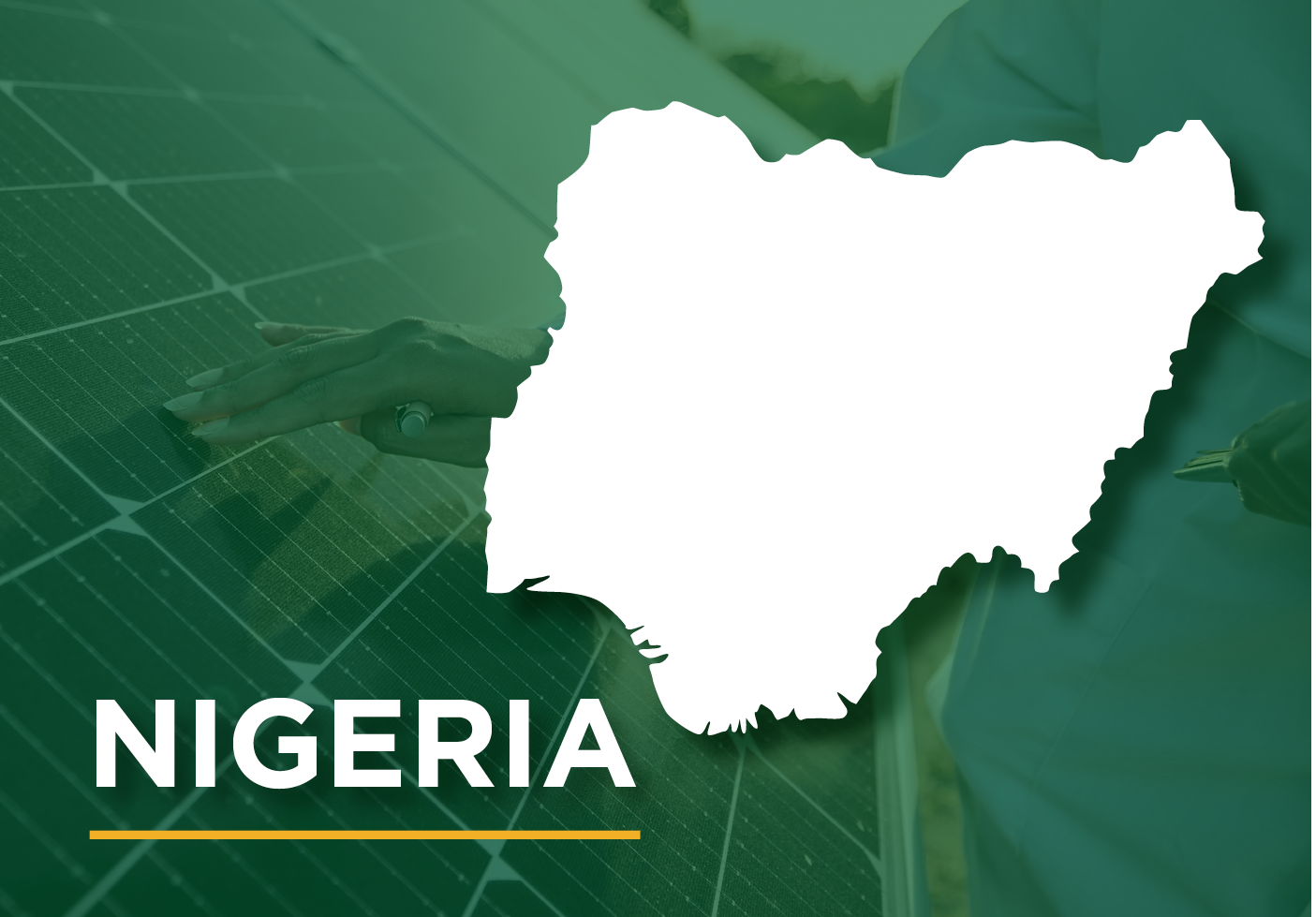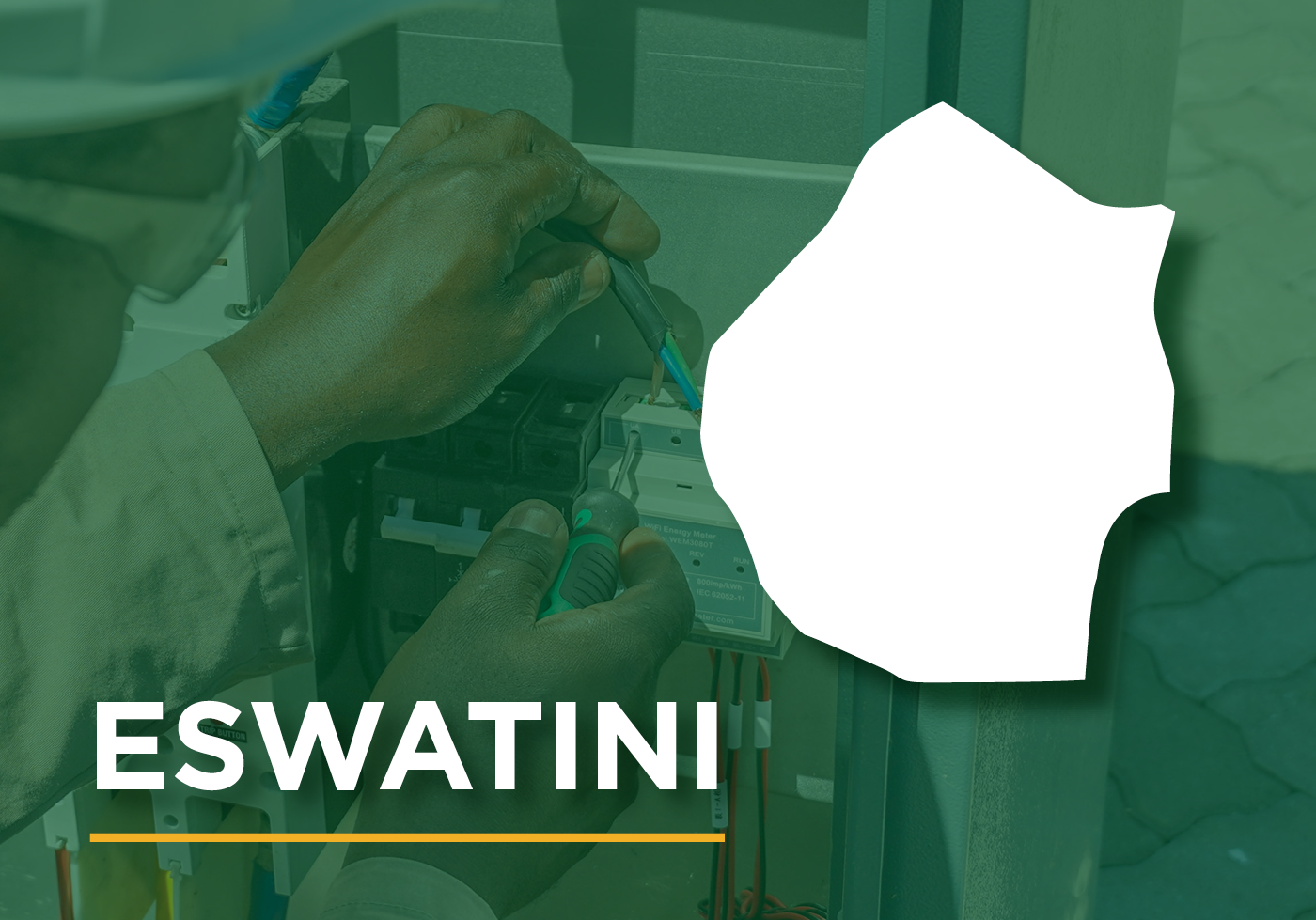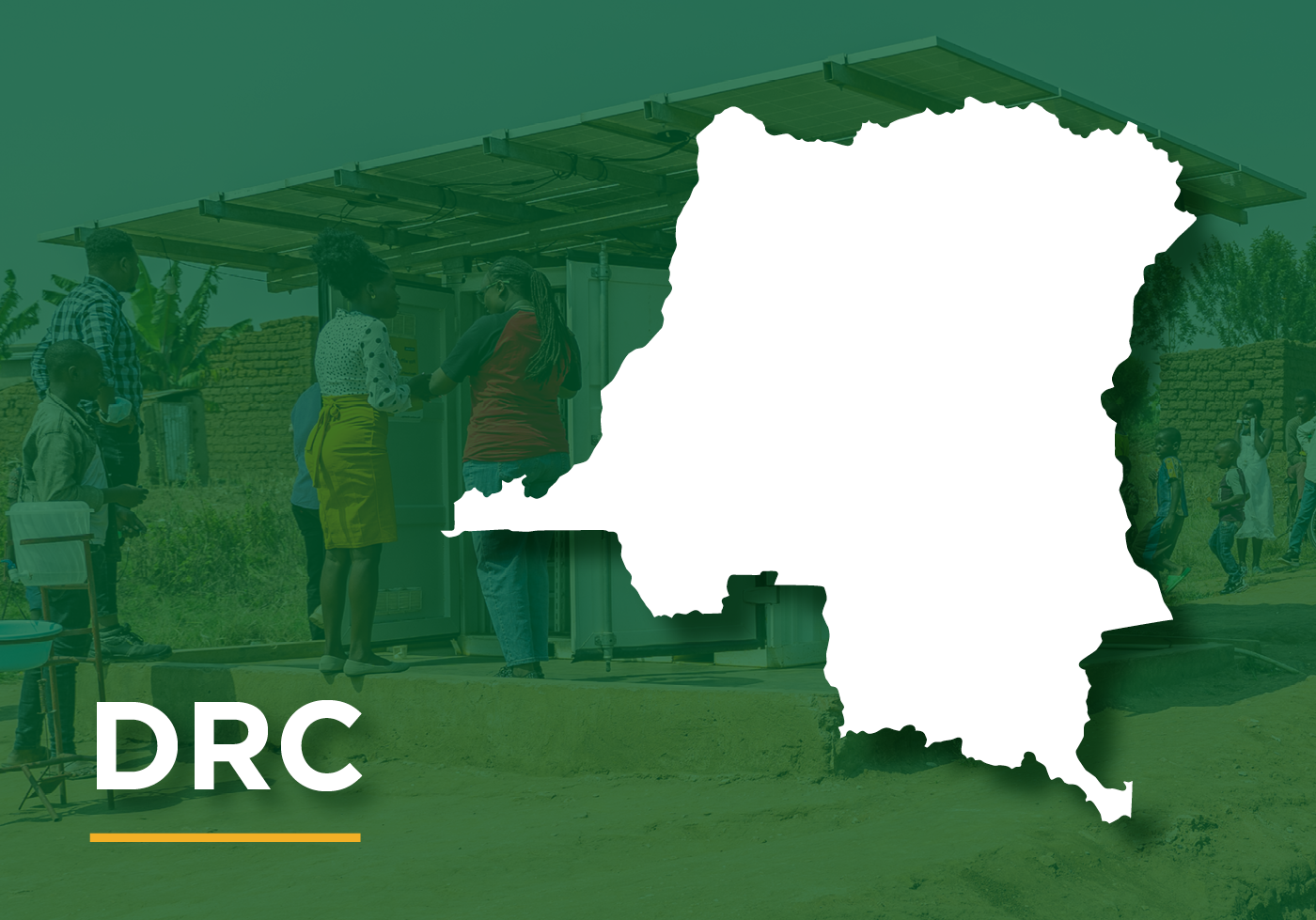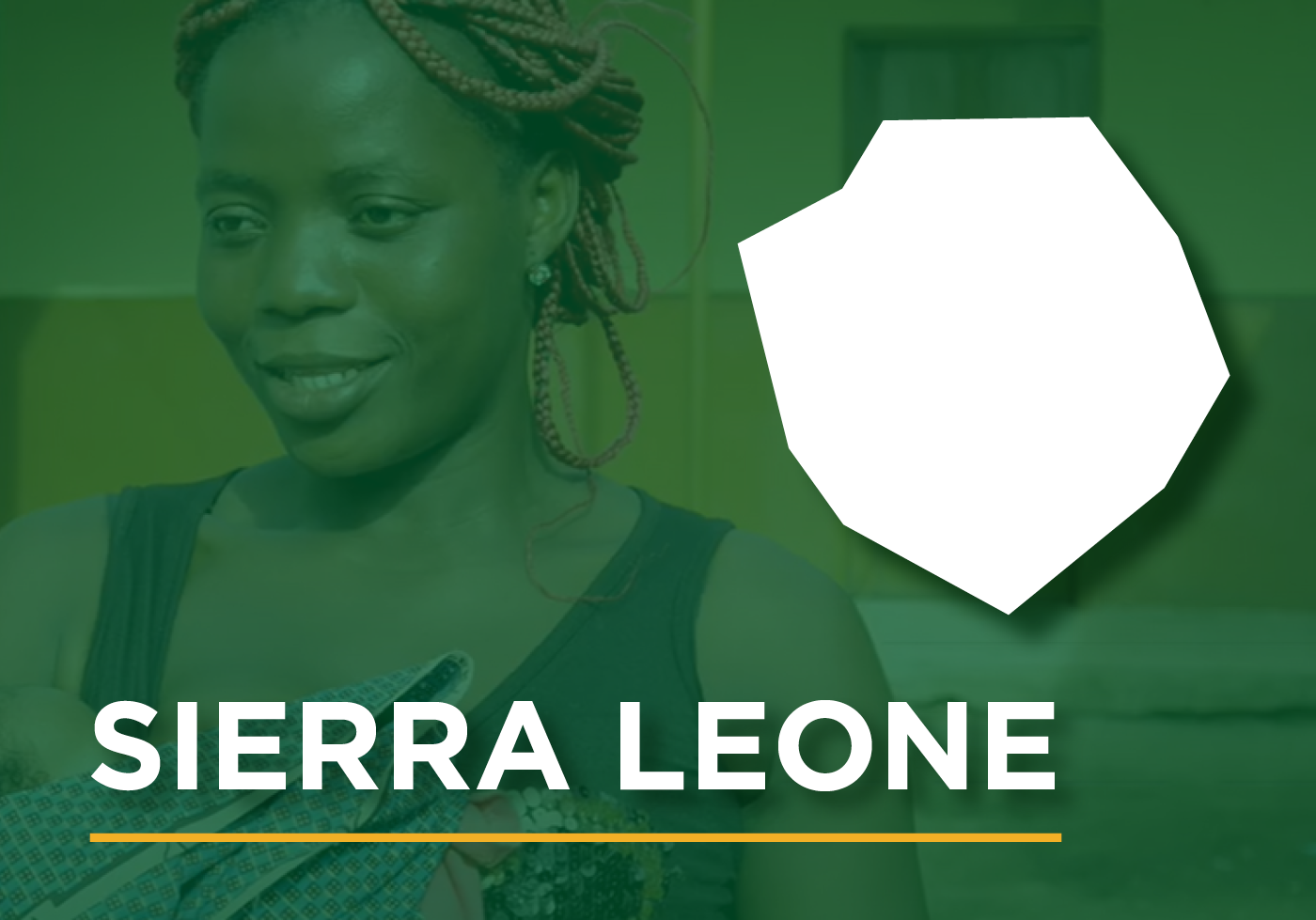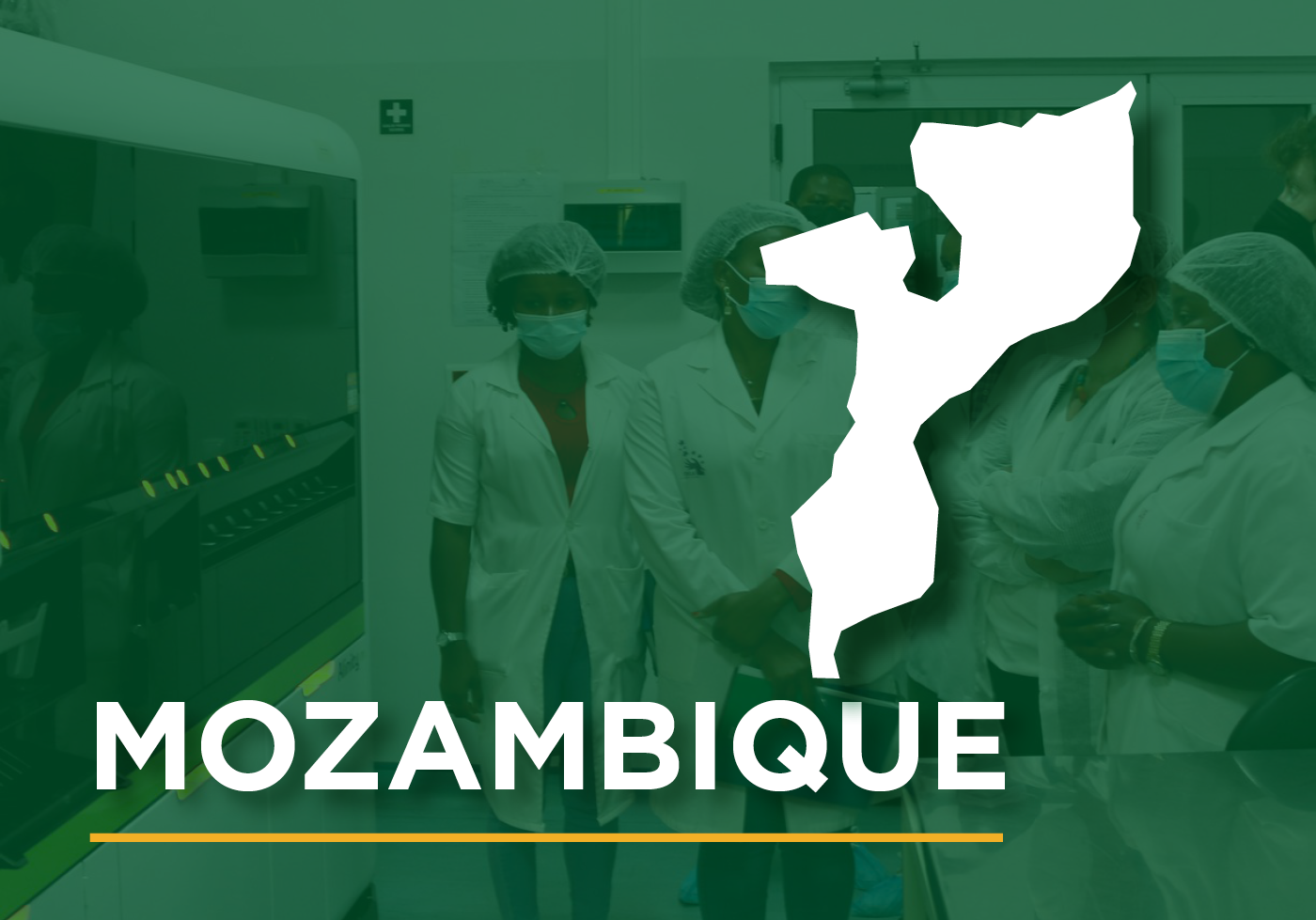Powering and Connecting Health in Africa
First Annual Report of the Health Electrification and Telecommunications Alliance
2022–2023

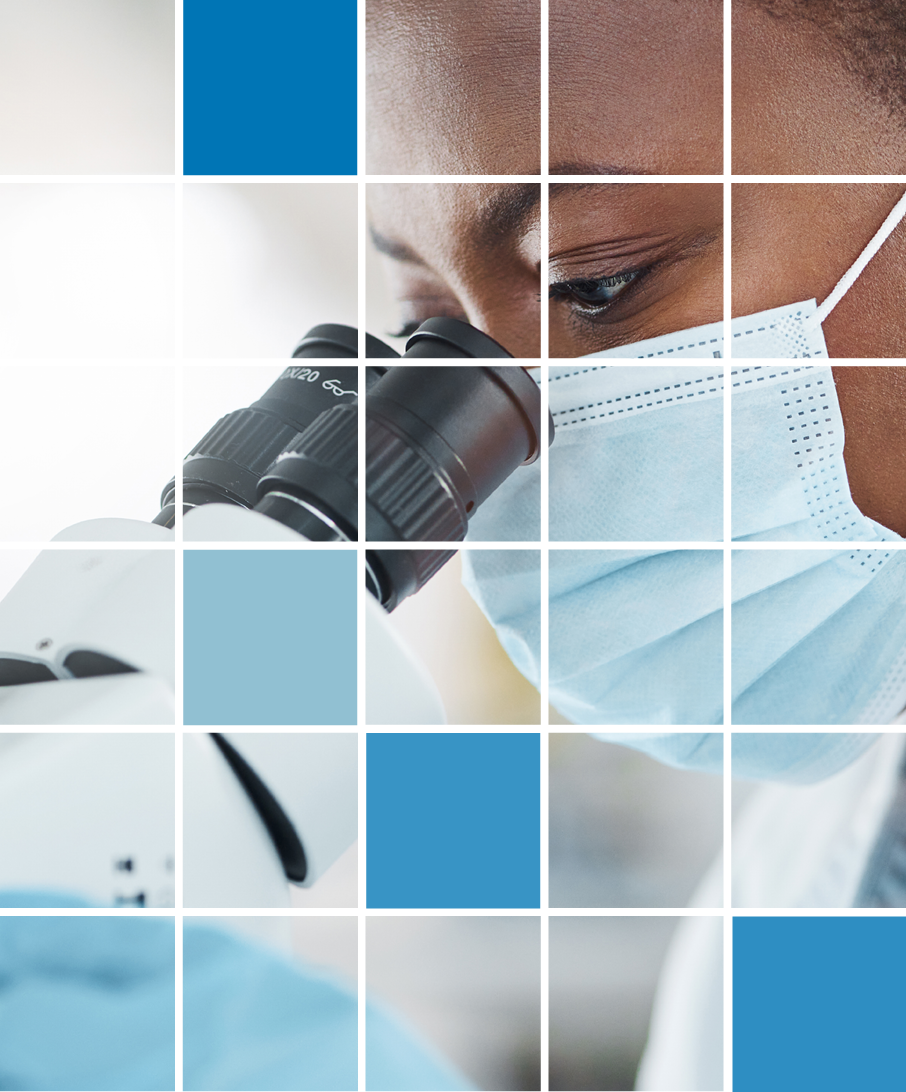

HETA: An Overview
In sub-Saharan Africa, some 100,000 health facilities lack access to reliable electricity. This threatens lives, causes equipment malfunctions, and limits internet connectivity for critical data and digital recordkeeping. Unfortunately, funding to meet the need has been sorely lacking, especially for ongoing maintenance of health electrification equipment after it is installed.
The Health Electrification and Telecommunications Alliance (HETA) is a
USAID Global Development Alliance and Power Africa’s flagship initiative to
address these challenges. Our goal is to support 10,000 facilities with new or
improved access to reliable electricity and digital connectivity—powered by
renewables.
HETA’s work is driven by a vision of resilience that sees
energy access as essential infrastructure for strong health systems and healthy
communities across sub-Saharan Africa.
HETA has three overarching
goals:
Increase public, private, and social sector
partnerships to implement health facility electrification and
digital connectivity.
Grow the quantity and diversity of
resources, especially funding, for health facility
electrification and digital connectivity.
Design inclusive and sustainable business
models to ensure operations and maintenance (O&M)—a
longstanding challenge for renewable energy in the health sector.
Our vision also looks beyond HETA’s first five years, seeking to create the governance structures and funding base for an independent organization that can continue supporting energy access and digital inclusion for the health sector well into the future.
HETA's VISION
Resilient health systems powered by renewable energy in Africa.
Reflecting on HETA’s First Year
HETA moved fast in our first 12 months and learned a lot along the way. We forged connections with more than 20 global and country partners, mobilizing leverage funds and expertise that are amplifying USAID’s investment in HETA. This enabled us to deliver renewable energy and digital connectivity solutions for more than 200 health facilities in our first fiscal year.
The alliance is a White House–supported initiative and a USAID
deliverable under the Partnership for Global Infrastructure and Investment (PGI).
HETA formally launched at the 27th United Nations of the U.S.-Africa Leaders Summit.
Our work is intersectional, standing at the nexus of energy access, health system
resilience, and just climate transitions. Our approaches emphasize country
priorities and private sector–led solutions for power and connectivity, customized
for each health facility.
HETA is unique among Power Africa programs in
our scope—10,000 health facilities—and in our close ties to global health
priorities. This lets us tap into a diverse network of co-funders, implementing
partners, thought leaders, and constituents from the public and private
sectors—including USAID champions from many parts of the Agency. We’re proud
of our progress so far and we’re delighted to shine a spotlight on a few of
our partners in this report.
An annual report is a snapshot taken at one moment in time—in this case, where we were on September 30, 2023. As you read this, work is well underway for HETA’s second year. We are deepening partner engagement, diversifying funding and other resources for our work, and empowering our partners to deliver at the highest levels of quality, scale and sustainability, with a focus on greater inclusion of youth and women. We look forward to sharing our results, scaling up proofs of concept, and solidifying our approaches to sustainable, market-driven innovations that deliver reliable, renewable energy and digital connectivity for health facilities across the region.

Joan Chahenza
HETA Project Director
Abt
Global

Gina Cady
Technical Advisor for Health
Electrification
Power Africa
HETA's MISSION
Create durable partnerships and business models for sustainable health facility electrification and digital connectivity.
HETA by the Numbers
October 7, 2022 – September 30, 2023
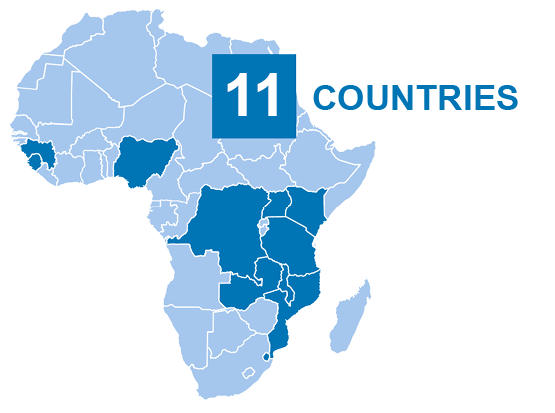
USAID-funded
programs in DRC, Eswatini, and Tanzania, plus a stand-alone HETA grant in Nigeria. Planning
and partnership development in Guinea, Kenya, Malawi, Mozambique, Sierra Leone, Uganda, and
Zambia.
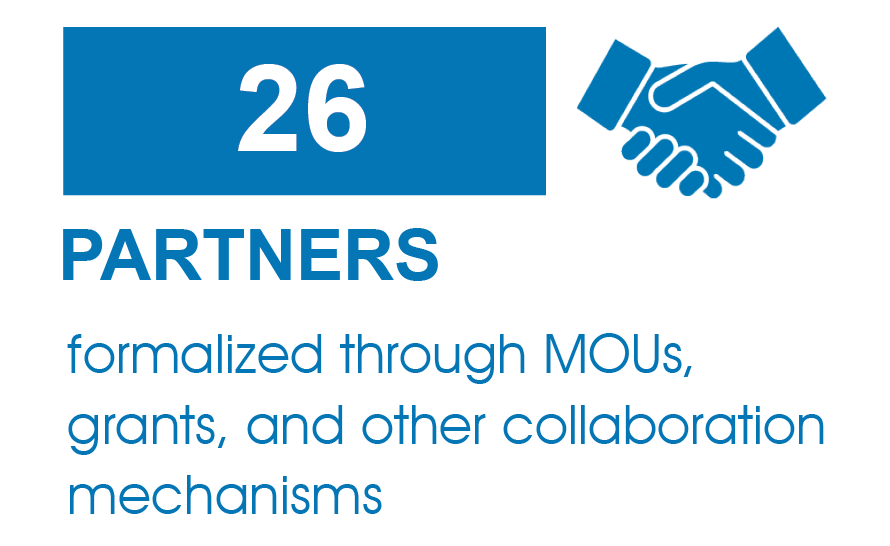
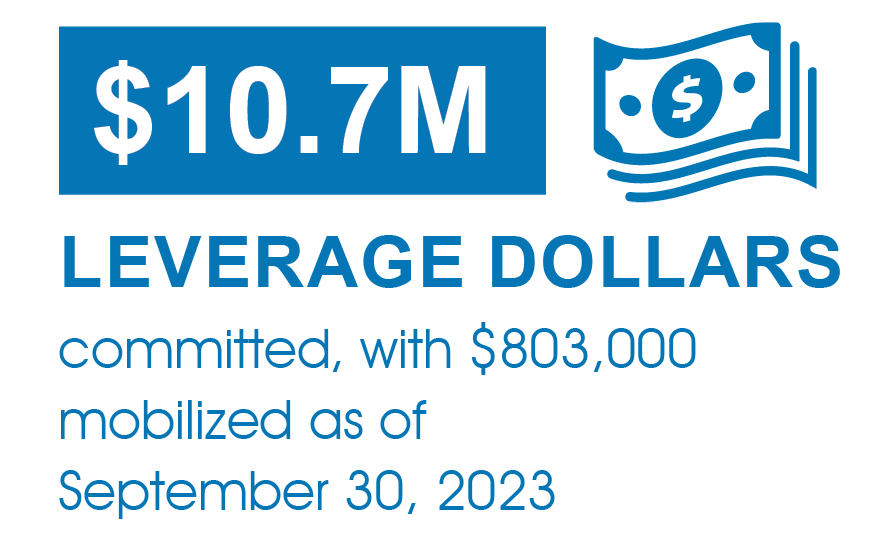
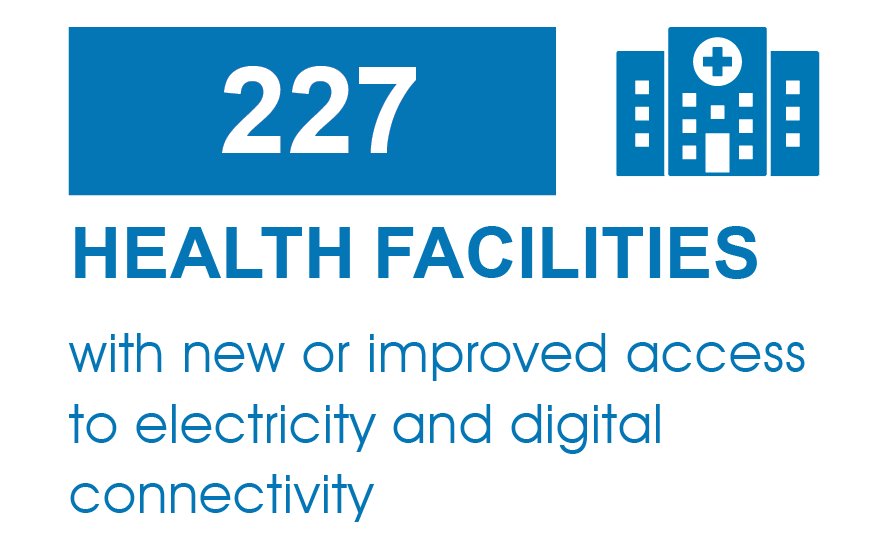
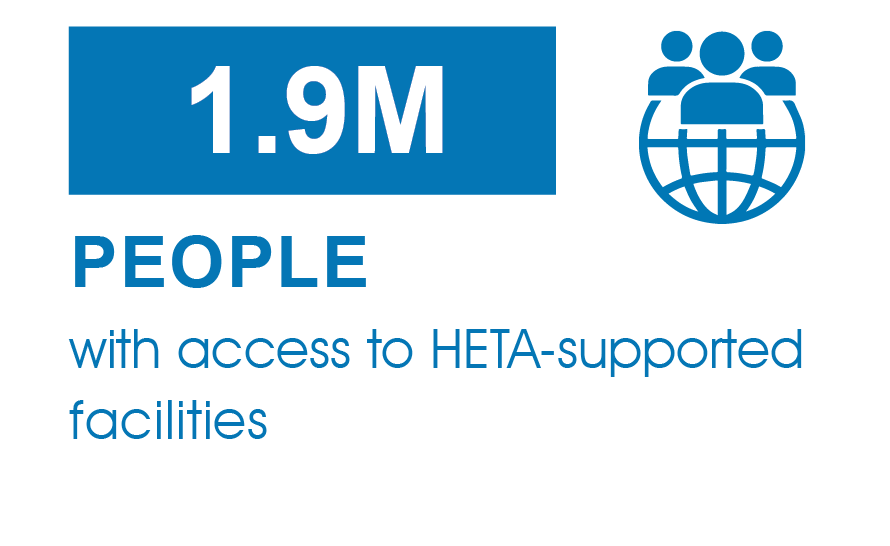
HETA's GOAL
Reach 10,000 health
facilities across the region in five years.
Year in Review
HETA launched just a few weeks ahead of
COP27 – the 27th United Nations Climate Conference. On November 12, 2022, leaders
from Power Africa, Abt Global, bechtel.org, and other supporters were in Sharm
El-Sheikh, Egypt, to introduce the alliance and commit to collective action toward
HETA’s goals.
As one of USAID’s largest-ever Global Development
Alliances, HETA’s ambition is to unlock funding and build coalitions to ensure
that health facilities across sub-Saharan Africa gain or improve their access to
energy and digital connectivity—powered by renewable energy.
HETA is a
priority for the U.S.-Africa Partnership, reflecting the intersectionality of our
work at the nexus of health, energy, and climate change.
Specifically, this alliance is designed to
amplify the U.S. government’s $47 million investment by mobilizing at least
$100 million in investment and co-funding from the public, private, and social
sectors to install reliable, renewable power and provide mobile network or internet
access for 10,000 health facilities in Africa.
Abt is the lead
integrator for HETA, with founding partners RESOLVE, bechtel.org (Bechtel’s
social enterprise), Orange, and a growing alliance of partners in the health,
energy, and telecommunications sectors. These partners are the beating heart of
HETA’s work—delivering funds, equipment, technical assistance, and in-kind
resources to design, install, and sustainably operate and maintain renewable energy
systems for healthcare, linked to mobile or internet networks. They helped HETA
initiate activities in 10 countries in our first year.

"These mutually beneficial
partnerships advance shared priority areas, including sustainable energy, health systems, …
digital connectivity, infrastructure, and finance."
— White
House Fact Sheet: Biden-Harris Administration Delivers on Major Trade and Investment Deals
Following the 2022 U.S.-Africa Leaders Summit, July 2023
HETA’s Theory of Change
COVID-19 emphasized the human cost of
health electrification gaps, catalyzing rapid action. Long-standing challenges
remained, however, especially in how to ensure sustained funding for operation and
maintenance (O&M) of the energy systems, particularly where health system resources
are already stretched thin. Meanwhile, a vibrant renewable energy sector in Africa
and globally offers the promise of lasting change.
Our theory of change is inspired by these realities. Reliable
electricity is crucial not only for essential health services, but also for ensuring
we have the data and internet-enabled communication flows to prepare for and respond
to new epidemics and climate-related changes in disease patterns—or even to prevent
future pandemics.
Across sub-Saharan Africa, HETA looks to unlock significant
funding and partnership networks that will transform these realities for thousands
of health facilities and the communities they serve.
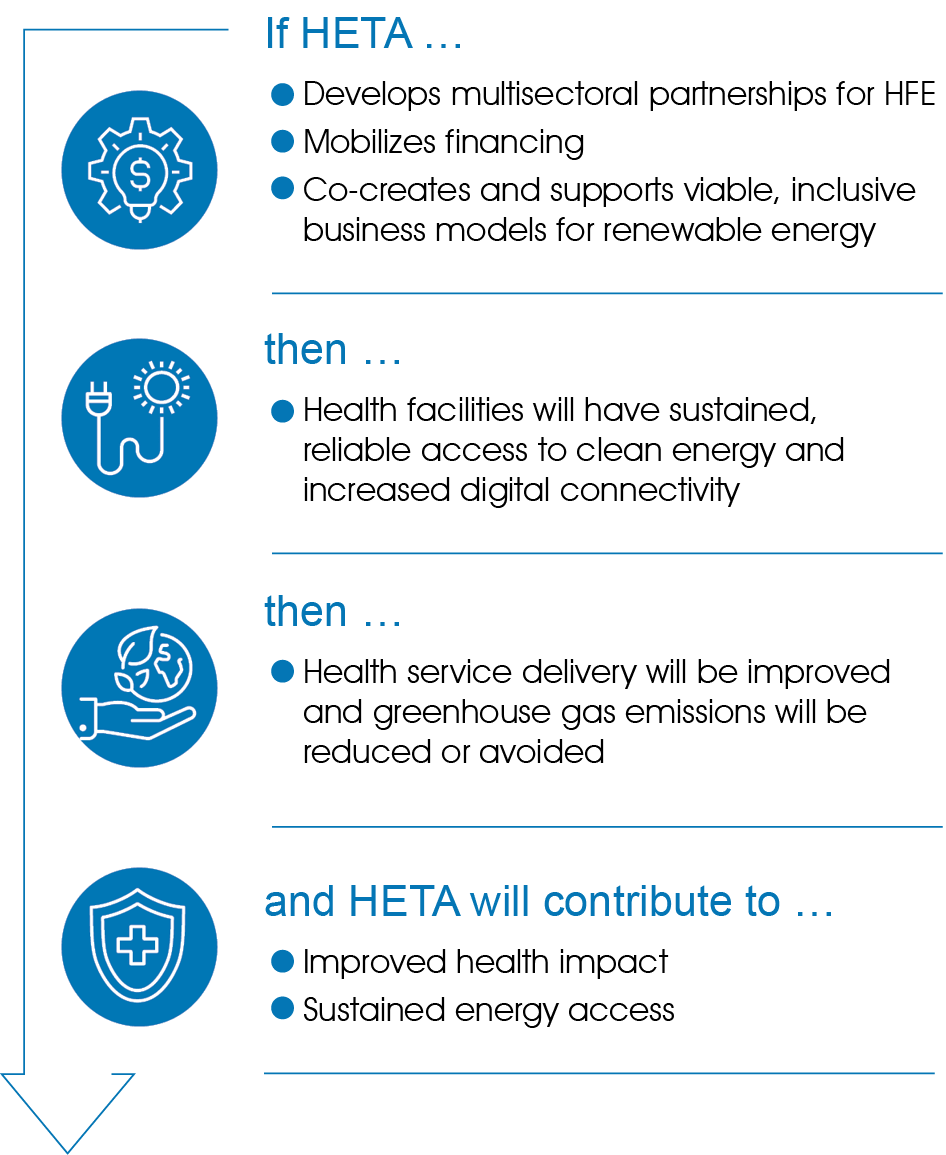
HETA's PRIORITIES
Sustainability:
Moving beyond traditional procurement models.
Scale:
Mobilizing significant private capital and other co-funding.
Country Progress
October 7, 2022 – September 30, 2023
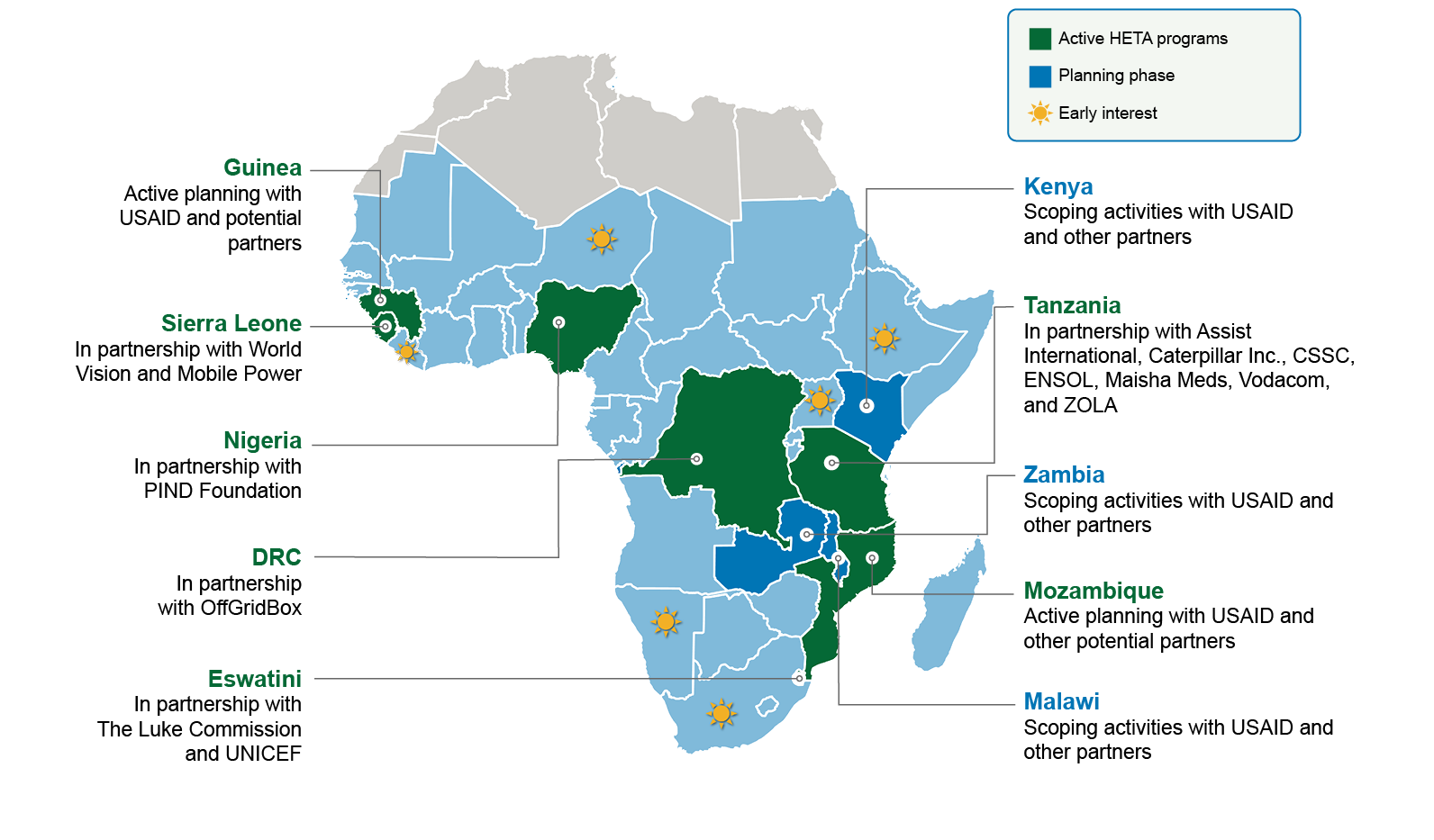
Partner Spotlight
Bechtel is committed to building resilient and sustainable communities through infrastructure projects. Bechtel established bechtel.org in 2019 to improve the services infrastructure projects are intended to provide, such as health, education, and food security.
bechtel.org provides HETA
with expertise in engineering, procurement, contract formation, and
construction execution, including the development of quality assurance and
health and safety programs. bechtel.org personnel also participate in
collaborations and technical meetings with partners, industry experts, and
host-country governments, and provide key perspectives as a member of the
technical review team evaluating concept note submissions and other
proposals, with about 40 installations underway as a result. bechtel.org
also assists in the site selection process and helps prepare local teams and
in-country partners for installation activities.

All these efforts focus on the sustainability of the
overall systems, particularly the quality of components and installations,
long-term O&M strategies, and revenue-generating or inclusive commercial
models scalable to work across multiple countries, climates, and economic
regions. bechtel.org also initiated and helped facilitate partnerships to
support HETA in Tanzania, Nigeria, Eswatini, and Democratic Republic of the
Congo.
To solve the O&M challenge that has put so many installations
and their intended impact at risk, bechtel.org has helped establish
HETA’s standards for quality and environmental safety and health, and
our processes for installation and O&M.
Country by Country
Building Momentum
Promising Delivery Models
Our first year was rich in learning as
we forged strong relationships with USAID and HETA partners, analyzed country health
priorities to tailor our work for local realities, and rolled out promising
operational models that deliver more than just equipment.
Our work across sub-Saharan Africa is already
showing the value of moving beyond traditional procure-and-install models and toward
lasting, commercially viable partnerships with energy and telecommunications
partners. Most health facilities in sub-Saharan Africa are government owned and
operated, and solar electrification has often been achieved through traditional
grant- and donor-funded procurement approaches. Without budgets for long-term O&M,
however, sustainability is a challenge. There is growing interest in “energy as a
service” business models (in which payments are made for electricity supplied rather
than equipment installed). It remains to be seen how energy as a service might be
deployed in public facilities, given a lack of de-risking mechanisms, a lack of
commercial business cases for private capital, and high transaction costs for
structuring projects. HETA is working with stakeholders to structure a scalable
model to address these constraints.

Another approach that HETA is deploying—one that could be
more viable for public health facilities with limited budgets—looks at productive
uses of energy. In this model, a solar energy system is oversized for the needs of
the health facility, providing “excess” electricity that can be sold to nearby
business ventures. This generates revenue that the health facility can use to
maintain the energy systems or reserve in an O&M fund for eventual replacement of
batteries and other equipment. Where solar energy systems replace fossil
fuel–powered electricity systems, there is also potential to certify and monetize
the renewable energy credits, offering another option for revenue to partially
offset the costs of O&M.
Further supporting sustainability, founding partner
bechtel.org is also supporting HETA to standardize our quality assurance toolkit,
risk assessment and mitigation plan, and a standard package of energy solutions—with
flexibility to customize by country—that will enable us to reach greater numbers of
health facilities while ensuring high-quality implementation, strong and inclusive
local capacity for O&M, and sustainable partnerships to power and connect
healthcare.
“… As the world accelerates the
shift to clean energy and decarbonization, women and girls must be fully engaged in the
sector as decision-makers and agents of change for the transition to be just, equitable, and
sustainable."
— Ellen
Bomasang, Advancing Women’s Representation and Leadership in the Energy Sector
Engagement and Inclusion
Local engagement and empowerment are
essential for HETA’s long-term success. In our theory of change, we envision
youth- and gender-inclusive implementation that extends to productive uses of energy
in the health facilities we support—and in the communities they serve. In Tanzania,
HETA’s first year has shown how the right partnerships can enhance
women’s economic empowerment in the health sector as well.
For our second year, we are exploring programs in
Democratic Republic of the Congo, Sierra Leone, and across the region that will
advance inclusion through partnership-driven training, capacity strengthening, and
productive uses of energy for women-run businesses and community organizations. We
are also committed to working with and supporting energy and telecommunications
service providers to adopt policies that promote workforce equity, safeguard women
and youth, and empower them with job skills and opportunities in these fast-growing
sectors.

Collective Action to Power Healthcare
HETA’s target of 10,000
facilities, however ambitious, is still just one tenth of the estimated need in sub-
Saharan Africa alone. This year, we also began designing “HETA 2.0”—our vision for a
self-sustaining entity to carry our work forward beyond these first five years.
Working with Power Africa, our founding partners,
and others, we are designing the governance structures and funding base for an
independent organization that can continue supporting energy access and digital
inclusion for healthcare, well into the future.
Partnerships power our
shared work. Success requires a strong financial foundation and commitment from a
vibrant network of partners who contribute ideas, expertise, and funds to each
aspect of our work. To build toward this vision, we are working diligently to
diversify HETA’s funding—including through an innovative health impact bond
that we hope to launch in early 2024. We look forward to working with many of you in
the months and years to come.
Many Ways to Join Our Alliance
-
Anchor or cornerstone partners that guide specific activities
-
Funders that provide direct financial support or donate goods, materials, or pro bono services
-
Alliance members who sign the original Memorandum of Understanding between Power Africa (USAID) and the HETA founding partners (Abt, RESOLVE, bechtel.org, and Orange)
-
Enablers that contribute to HETA’s work without contributing leverage, such as service providers
-
Investors that provide private capital
-
Grantees who implement work at HETA sites and providing leverage
-
Constituents, including host-country government agencies, health facilities, and other “end users” that have a role in or receive benefits from HETA’s work

Ready to Collaborate with HETA?
Join the Alliance
Support HETA’s core work by signing on as a leverage partner to bring
financial, technical, or other in-kind support to the alliance. From there,
we’ll co-create specific partnership activities that fit your
interests.
Submit a Concept
Become a co-creation partner by submitting a proposal to one of our concept
windows that illustrates how you are ready to implement activities that
advance HETA’s goals—and your own—at the country level.
HETA Annual Report
Maximize the resources available to HETA’s implementation activities
in specific countries by joining us as a co-funder. Your matching dollars
will multiply the leverage resources we’re able to mobilize from other
sources.
Invest in the Impact Fund
Buy into the shared vision via HETA’s impact bond, an innovative
financing vehicle that multiples the impact of individual investors.
This report and the experiences it documents
were made possible through the support of the American people through the United States
Agency for International Development (USAID). It was produced by Abt Global for the Power
Africa Health Electrification and Telecommunications Alliance (USAID Cooperative Agreement
72067422CA00003).

